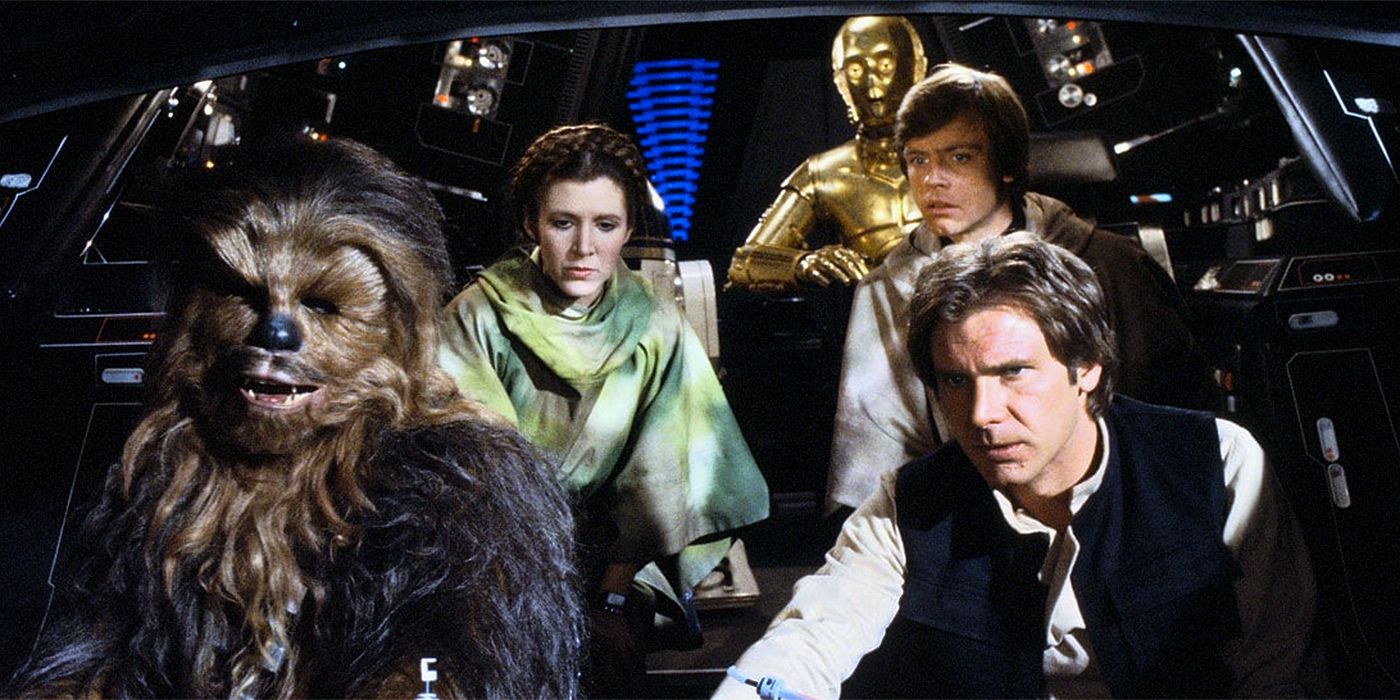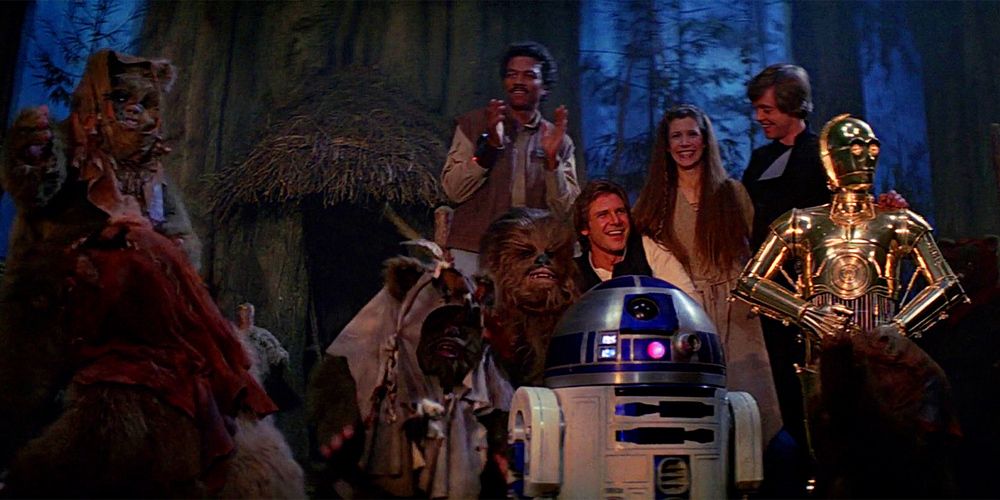The Library of Congress has announced its annual set of inductees into the National Film Registry, recognizing movies for their historical and cultural significance and ensuring their preservation to stand the test of time. Among this year's inductees are 2001's The Lord of the Rings: The Fellowship of the Ring and 1983's Return of the Jedi, with the latter joining 1977's Star Wars and 1980's The Empire Strikes Back to complete the original Star Wars trilogy preserved by the National Film Registry. However, while Star Wars and The Empire Strikes have both been officially selected for preservation by the National Film Registry, the original theatrical versions of the films are the ones intended to be preserved rather than the Special Edition versions released by filmmaker George Lucas in 1997.
The re-release story behind the Star Wars Original Trilogy is an especially complicated one, dating back to the original film receiving a theatrical re-release in 1981 with the added subtitle Episode IV: A New Hope whereas the initial release simply titled the film Star Wars. The entire Original Trilogy had its picture and audio remastered digitally by Lucas in 1997, dubbed the Special Edition, though the included changes have always been a controversial decision, ranging from a song-and-dance number added to Return of the Jedi to (most infamously) Greedo attempting to shoot Han Solo in the Mos Eisley cantina before being killed by Han in Star Wars.
The revisions to the Original Trilogy, overseen by Lucas, would persist across its various home video re-releases in the ensuing years. Some of the more divisive additions made to the original trilogy included Hayden Christensen being digitally superimposed over Sebastian Shaw's Anakin Skywalker in the Return of the Jedi finale while the Blu-ray release featured a new audio mix with subtler changes, such as adding eyelids to Ewoks to allow them to blink on-screen. The most recent changes made to the trilogy were made when the films were remastered for Disney+'s 4K UHD presentation, with the most infamous of this set being an added line of dialogue for Greedo before he shoots at Han.
Apart from a limited edition DVD run in 2006 where they were included as a bonus disc with a relatively untouched digital transfer, the theatrical versions of the Original Trilogy has not been re-released since. While the Library of Congress possesses archival prints of the films for intellectual property purposes when the copyrights and trademarks were first filmed upon each film's respective filing ahead of their theatrical run, it is currently unclear if they have received more preserved prints of the films since their National Film Registry selection. For his part, Lucas cited that the process to remaster and restore the original prints of the theatrical versions would be prohibitively expensive while J.J. Abrams was told that a home video release of the unaltered original trilogy was "not necessarily possible" when inquiring about the prospect internally.
Return of the Jedi's National Film Registry induction reignites a debate that has been brewing among fans ever since the Special Edition remaster was unveiled whether the changes distort what had made the classic space opera franchise so endearing or if they helped modernize the experience to match technology and Lucas' longstanding vision. And while Return of the Jedi may be preserved by the National Film Registry, this historical distinction may be one that doesn't extend to home audiences as the theatrical versions have remained unavailable for over fifteen years.



